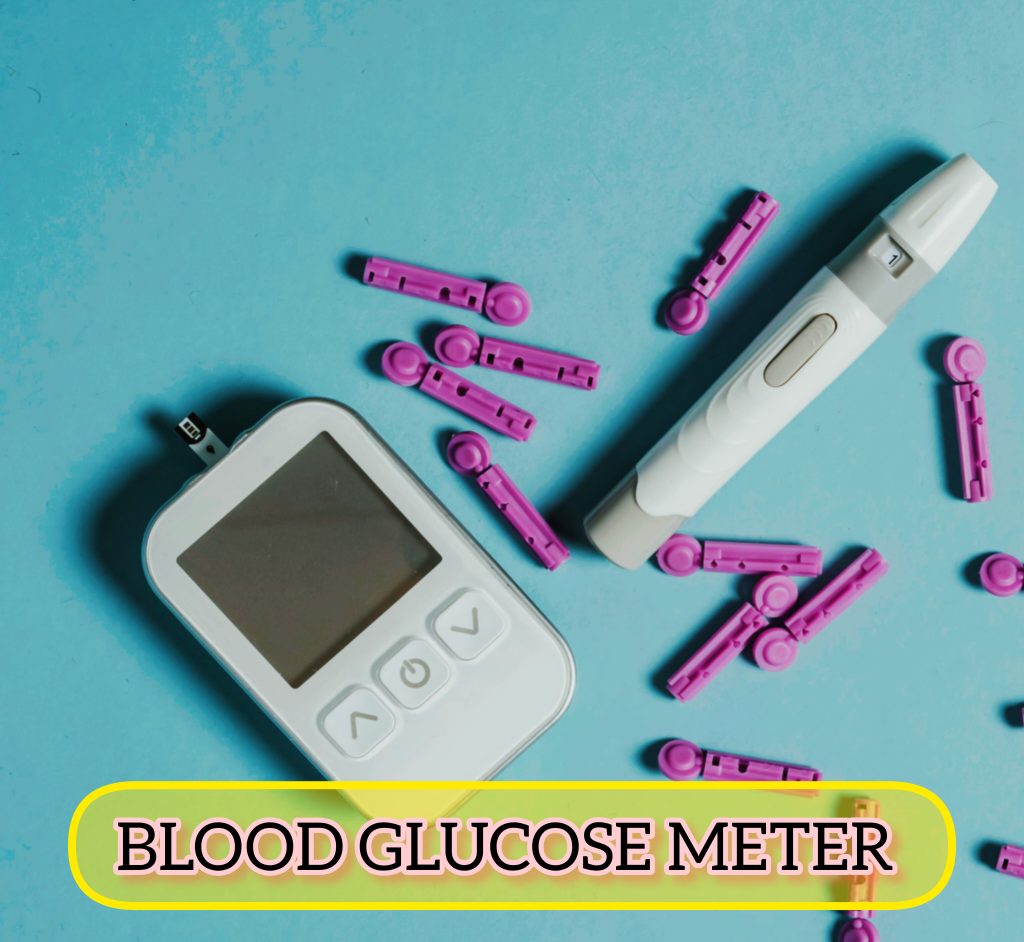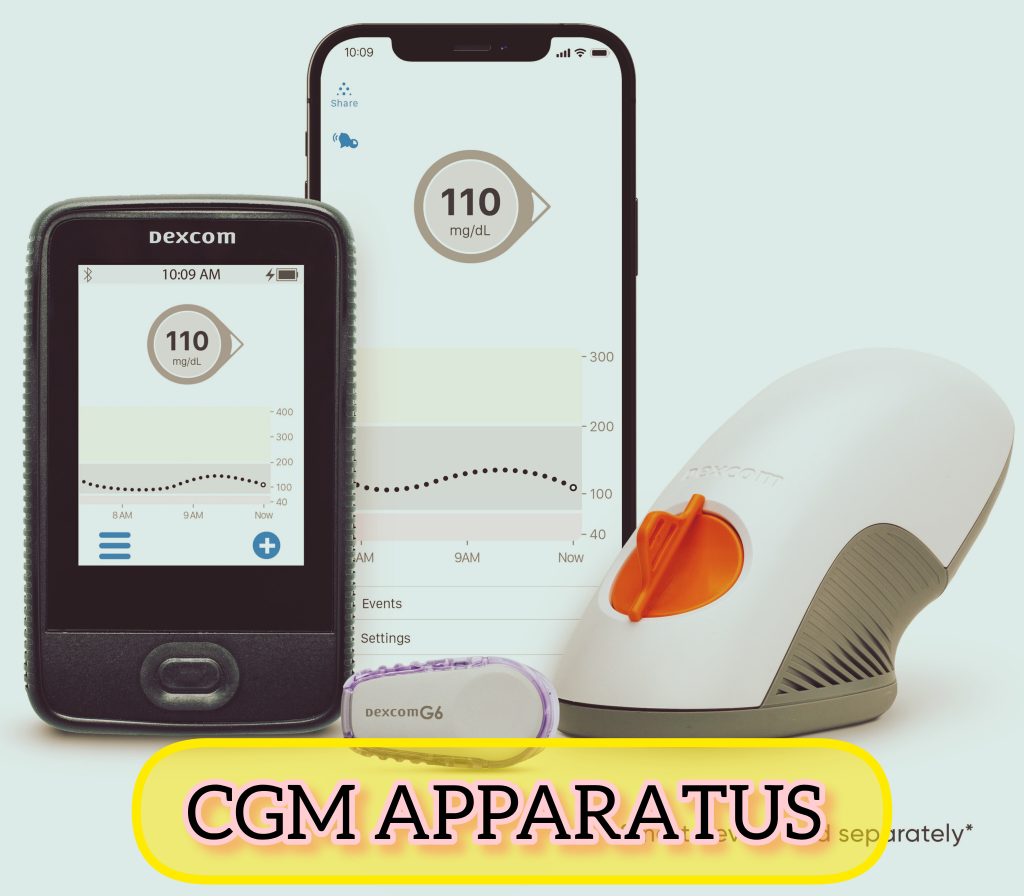Table of Contents
Introduction
Diabetes is a chronic endocrine medical condition caused by High blood sugar (glucose) levels. Glucose acts as a major source of energy in the body’s cells. It is obtained from the regular food that we eat. A hormone named insulin helps glucose enter different types of cells. In this blog, we’ll discuss the types, causes, and symptoms of diabetes and what we can do to reduce it.
Insulin
Insulin is a hormone that is produced by the pancreas. It helps in the absorption of glucose into different types of body cells.
Types of Diabetes
We’ll discuss four types of diabetes here:
Type 1
This is an autoimmune disease in which your immune system mistakenly attacks the cells in the pancreas that are responsible for the production of insulin. It results in less or no insulin production. The glucose from food starts collecting in our blood vessels, resulting in high blood sugar levels. It affects 5-10% of diabetic patients.
Type 2
This type occurs when your insulin-receiving cells stop responding or the pancreas produces less insulin. This is the most common type of diabetes, affecting 90-95% of diabetic patients.
Cause of Type 2
Type 2 has many causes and risk factors but artificial sweetener is a major cause of type 2.
Gestational Diabetes
This type is a conditional and time-limited disease in women that occurs during pregnancy and ends after the period of pregnancy. It also occurs due to less insulin production or no response from insulin receptors. It occurs in 10% of pregnant women.
Maturity-Onset Diabetes of the Young (MODY)
The disturbed production of insulin causes MODY because of a single-gene mutation. It is an autosomal dominant disease and the most rare type of diabetes.
Exceptions: As we told you gestational diabetes and MODY are conditional or time-limited and they are rare. They also don’t occur because of any cause related to a controllable lifestyle. So, we’ll only discuss long-term diabetes types.
Methods of Diagnosis
There are two methods to diagnose blood glucose levels:
1. Devices
Two types of devices are used to monitor the blood glucose levels:
i. Blood Glucose Meter

This portable device uses a small drop of blood to diagnose blood glucose levels through its strips.
ii. Continuous Glucose Monitor (CGM)

This small sensor is inserted into the body and transmits live blood glucose data to its receiver or a mobile phone app.
2. Blood Test
Blood sugar levels can also be diagnosed through a blood test called hemoglobin A1c (HbA1c).
Blood Sugar Measurement Table
| Measurement | Units | Target Range (Non-pregnant Adults) |
|---|---|---|
| Blood Glucose Meter Reading | mg/dL | Before meals: 80–130 |
| 2 hours after meals: below 180 | ||
| Hemoglobin A1c (HbA1c) | % | Below 5.7% |
| 5.7% to 6.4% (Prediabetes) | ||
| 6.5% or above (Diabetes) |
Risk Factors
As we know, diabetes can occur with or without any lifestyle-related reason. Here are some risk factors for diabetes:
1. Age
Usually, adults have a greater risk than the younger ones.
2. Family History
Having a close family member with diabetes is another risk factor.
3. Physical Inactivity
If we don’t exercise and always take a rest, our insulin sensitivity gets weaker.
4. Obesity
Being overweight or obese is also a risk factor for high blood sugar levels.
5. Gestational Diabetes
Despite gestational diabetes being a time-limited disease, it can also be a risk factor for Type 2 diabetes.
Symptoms
Here are some symptoms of diabetes:
1. Excessive Urination
Your body tries to excrete a large amount of glucose through excessive urination.
2. Increased Thirst
Dehydration occurs because of excessive excretion of glucose in urine.
3. Undefined Weight Loss
Without glucose, the body consumes muscular energy by breaking them down.
4. Increased Hunger
As your body cells don’t get enough glucose due to their needs, you’ll feel hungry despite eating a lot.
5. Fatigue
In the absence of glucose and lack of energy, the patient feels tired and weak.
6. Blurred Vision
High blood sugar can disturb your eyesight.
7. Slow Healing Wounds
High blood sugar slows down the recovery of wounds.
Health Issues
Diabetes can cause the following health complications:
1. Heart Disease
High blood sugar damages blood vessels, leading to blood circulation problems (high or low blood pressure), peripheral artery disease, heart disease and stroke.
2. Nervous System Issues
Consistently high blood sugar damages nerves, causing disturbances in the nervous system, feelings and sensitivity.
3. Kidney Disease
High blood sugar damages kidneys and kidneys can’t work properly, leading to kidney failure.
4. Vision Problems
High blood sugar damages blood vessels around the eye, causing blurred vision or permanent blindness.
5. Legs and Feet Problems
The immune system of the legs and feet gets weaker because of weak nervous coordination and damaged blood vessels. So, foot ulcers and infections may occur, with the risk of amputation.
6. Other Diseases
If you don’t take preventive steps against consistently high blood sugar, it can destroy your overall health from head to toe with diseases like bone weakness, skin infections, mental disorders and complications in pregnancy.
Safety Measures
Here are some safety measures you should follow before or during diabetes:
1. Avoid Artificial Sweeteners
Artificial sweeteners are used in candies, ice cream, artificial juices, carbonated drinks and other sweet and inorganic food products. We suggest you avoid such products as much as possible.
2. Avoid Smoking
Smoking increases the chance of diabetes and many other diseases. So, avoid every type of smoking.
3. Healthy Diet
- Eat more fruits and vegetables instead of processed foods containing artificial sweeteners and saturated fats.
- Drink organic juices instead of artificial-flavored juices and cold drinks.
4. Exercise
Exercise helps you maintain a healthier weight and increases your insulin sensitivity, so spend at least half an hour exercising.
5. Stress Management
Here are some tips to release your stress:
- Find proper solutions to your problems.
- Avoid meeting those people who are repeatedly hurting you.
- Try a freelancing environment if you are not ready to work under someone.
- Avoid the addiction to smart devices.
- Avoid crimes.
- Avoid sadism and controversies.
- Control your emotions.
- Avoid getting into temporary relationships.
6. Sleep Enough
Sleep at least 8 hours a day. it’ll maintain your insulin sensitivity.
7. Monitor your Diabetes
- Keep an eye on your blood sugar level with a blood glucose meter or continuous glucose monitor.
- Schedule a monthly Hb A1c blood test or as per the doctor’s advice.
8. Visit a Doctor
Schedule a monthly visit to a well-qualified doctor so, he can keep his eyes on your overall health.
Disclaimer:
This is a blog about diabetes or high blood sugar, just for information purposes. In the case of the appearance of any diabetic symptoms, consult a doctor instead of any carelessness or self-medication. Avoid copying any of our content or you may face copyright issues.
Additional Information
- If you’ve any questions related to this blog, feel free to leave a comment below.
- If you want to read more about diabetes, click on the link below.

